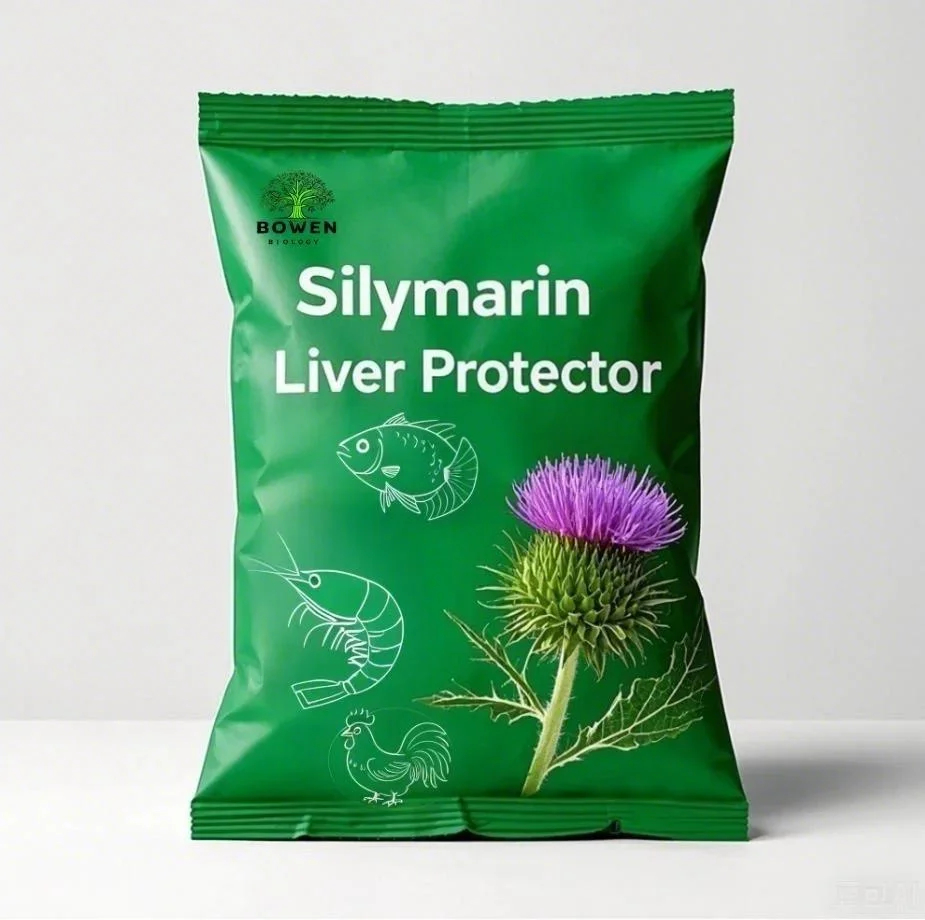Silymarin is a natural compound extracted from the milk thistle plant (Silybum marianum). It has gained significant attention in veterinary medicine due to its various beneficial properties. Here’s a detailed look at its applications and effects in the veterinary field:
1. Chemical composition and properties
- Composition: Silymarin is a complex mixture of flavonolignans, with silybin (also known as silibinin) being the most active and abundant component. Other components include isosilybin, silychristin, and silydianin.
- Properties: It has strong antioxidant, anti – inflammatory, and hepatoprotective properties. These properties are mainly attributed to its ability to scavenge free radicals, inhibit lipid peroxidation, and modulate various cellular signaling pathways.
2. Applications in different animal species
Dogs
- Liver protection:
- Toxic liver damage: Dogs may be exposed to various toxins such as certain medications (e.g., non – steroidal anti – inflammatory drugs in high doses), pesticides, and poisonous plants. Silymarin can help protect the liver cells from damage caused by these toxins. It works by stabilizing the cell membrane of hepatocytes, preventing the entry of toxins and reducing the leakage of enzymes from damaged cells. For example, in cases of acetaminophen toxicity, silymarin can be used as an adjunct treatment to support liver recovery.
- Chronic liver diseases: Conditions like hepatitis, cirrhosis, and liver fibrosis can occur in dogs. Silymarin’s antioxidant and anti – inflammatory effects can slow down the progression of these diseases. It can reduce inflammation in the liver, promote the regeneration of liver cells, and improve liver function. Clinical signs such as jaundice, anorexia, and lethargy may be alleviated with silymarin supplementation.
- Other benefits: Some studies suggest that silymarin may also have a positive impact on the immune system of dogs. It can enhance the activity of immune cells, helping the dog to better fight off infections.
Cats
- Liver support: Similar to dogs, cats can also suffer from liver problems. Silymarin can be beneficial in cases of feline hepatic lipidosis, a common liver disorder in cats, especially obese ones. By protecting the liver cells and promoting their repair, silymarin can assist in the recovery process. It can also be used in cats with liver damage caused by infectious agents (such as feline infectious peritonitis virus) or toxins.
- Antioxidant protection: Cats are more prone to oxidative stress due to their unique metabolism. Silymarin’s antioxidant properties can help protect their cells and tissues from oxidative damage, which may be associated with aging and various diseases.
Horses
- Liver health: Horses may experience liver disorders due to factors such as poor diet, exposure to moldy feed (which may contain mycotoxins), or certain medications. Silymarin can be used to support liver function in horses. It can improve the detoxification ability of the liver, enhance bile production, and reduce the inflammation in the liver tissue.
- Exercise – related stress: Intense exercise in horses can lead to oxidative stress and muscle damage. Silymarin’s antioxidant effects may help reduce the oxidative stress associated with exercise, promoting faster recovery and maintaining the overall health of the horse.
3. Administration and dosage
Forms of administration: Silymarin is available in various forms for veterinary use, including capsules, tablets, and liquid extracts. The choice of formulation depends on the animal species, size, and the ease of administration.
- Dosage: The appropriate dosage of silymarin varies depending on the animal’s weight, the severity of the condition, and the specific product used. In general, for dogs and cats, the dosage may range from 5 – 50 mg/kg of body weight per day, usually divided into multiple doses. For horses, higher doses may be required, typically in the range of several grams per day, but the exact dosage should be determined by a veterinarian.
4. Precautions
- Drug interactions: Although silymarin is generally considered safe, it may interact with some medications. For example, it can affect the metabolism of drugs that are metabolized by the liver’s cytochrome P450 enzyme system. Therefore, it is important to inform the veterinarian about all the medications the animal is currently taking before starting silymarin supplementation.
- Allergic reactions: In rare cases, animals may be allergic to silymarin or the milk thistle plant. Signs of an allergic reaction may include itching, swelling, and difficulty breathing. If any of these symptoms occur, the use of silymarin should be stopped immediately, and the animal should be taken to a veterinarian.

